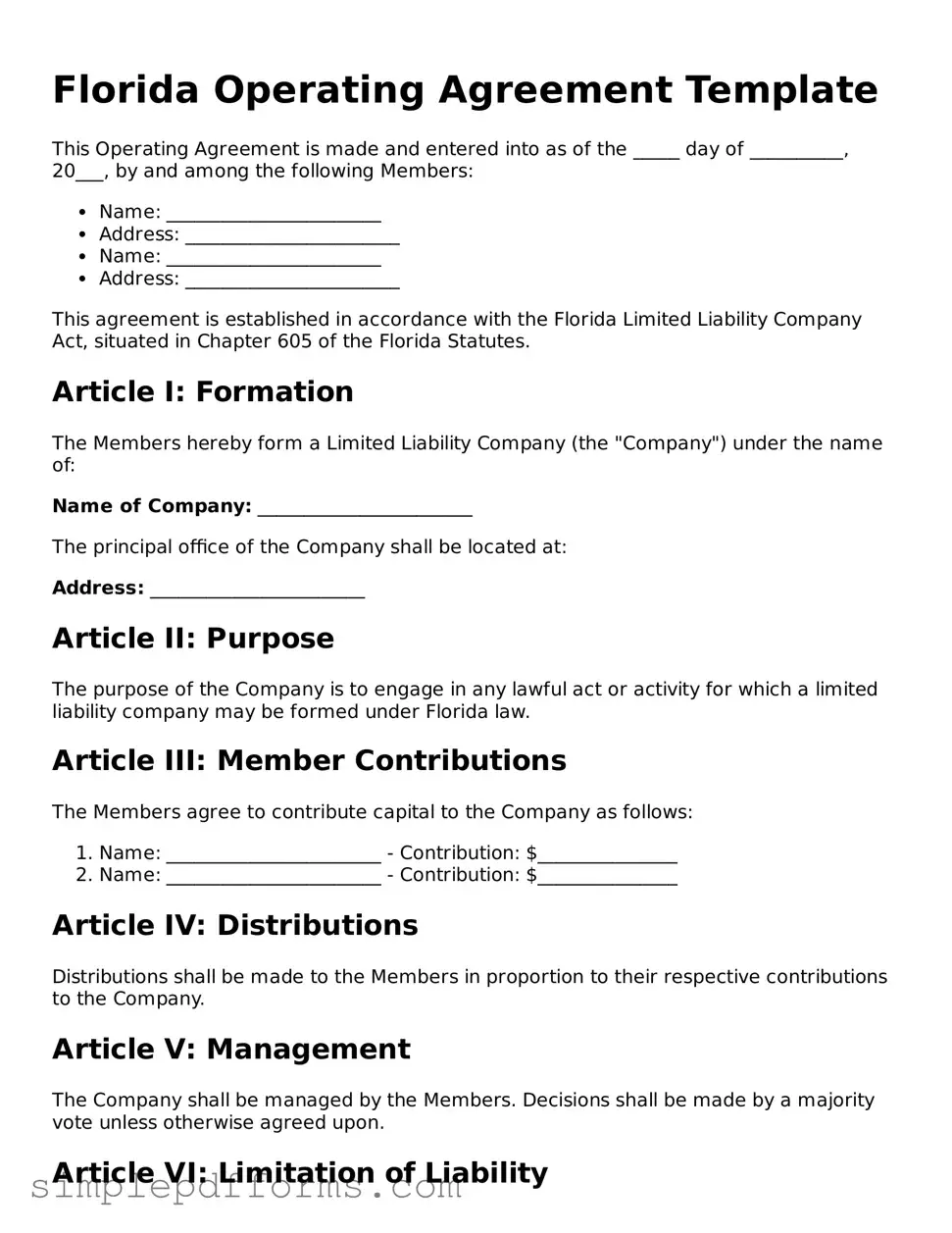Attorney-Verified Operating Agreement Document for Florida State
The Florida Operating Agreement form is a crucial document that outlines the internal workings of a limited liability company (LLC) in the state of Florida. This agreement serves as a roadmap for the members, detailing their rights, responsibilities, and the management structure of the LLC. By establishing clear guidelines, it helps prevent disputes and ensures smooth operations within the business.
Open Operating Agreement Editor Now

Attorney-Verified Operating Agreement Document for Florida State
Open Operating Agreement Editor Now

Open Operating Agreement Editor Now
or
Get Operating Agreement PDF Form
Your form is waiting for completion
Complete Operating Agreement online in minutes with ease.